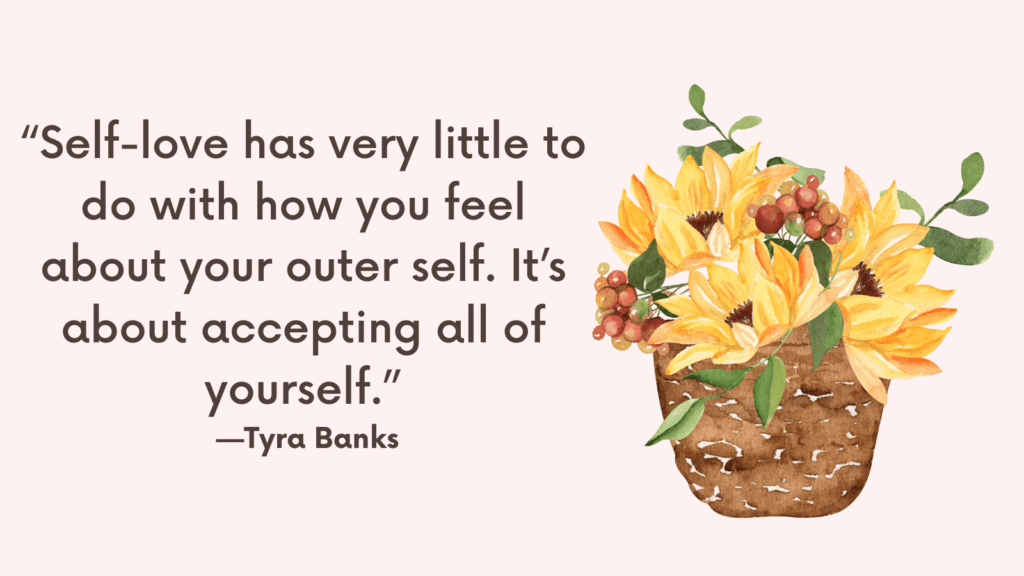This post contains some of the best journal prompts for the highly sensitive person.
What Are Journal Prompts?
Journal prompts are thought-provoking questions or statements that inspire you to write and reflect on a specific topic or aspect of your life.
they serve as a starting point to help you explore your thoughts, emotions, experiences, and beliefs through writing in a guided and structured manner.
Journal prompts can be used as a tool for self-discovery, personal growth, and self-reflection. They encourage you to delve deeper into your inner world, gain insights, and develop a greater understanding of yourself and your experiences.
Journaling with prompts can also help improve clarity, reduce stress, enhance creativity, and promote emotional well-being.
The intention behind journal prompts is to stimulate introspection and facilitate a deeper exploration of your thoughts and feelings.
They can be used as a regular practice, incorporated into daily or weekly journaling sessions, or utilized as needed whenever you desire to gain insights or process certain experiences.
Related: Top 9 Highly Sensitive Person Coping Strategies [HSP’s Survival Guide]
Journal Prompts For Highly Sensitive Person
1. Reflect on your earliest memories of being sensitive. How did it manifest and affect you?
2. Describe a time when you felt overwhelmed emotionally. What triggers were present, and how did you cope with it?
3. How does being highly sensitive impact your daily life? Explore the various aspects such as relationships, work, self-care, and decision-making.
4. Write about a recent situation where you felt deeply affected by someone else’s emotions. How did you navigate this experience?
5. How do you recharge and find balance as an HSP? Describe your favorite self-care practices and why they work for you.
6. Explore any challenges or frustrations you have faced due to your sensitivity. How have you grown from them?
7. Write about a time when your intuition strongly guided you. How did it feel, and what were the outcomes?
Related: Top Resources For Highly Sensitive Person (Tests, Support Groups, Books, Workbooks, Blogs, etc.)
8. Reflect on the positive aspects of being an HSP. What unique strengths and abilities do you possess because of your sensitivity?
9. Describe your ideal environment that supports and honors your sensitivity. How can you create more of this in your life?
10. Explore your boundaries as an HSP. How do you recognize them, communicate them, and maintain them?
11. Write about a time when you felt misunderstood or invalidated because of your sensitivity. How did it impact you, and what can you do to address it?
12. Reflect on the role of self-compassion in managing your sensitivity. How can you cultivate more self-compassion in your life?
13. Describe a recent sensory overload experience. How did it affect you physically, mentally, and emotionally?
Related: Top 8 Common Triggers For Empaths
14. Write a letter to your younger self, offering guidance and support to navigate the challenges of being an HSP.
15. Explore your relationship with stress and anxiety as an HSP. How do these affect you, and what coping mechanisms can you employ?
16. Reflect on any patterns or triggers that consistently evoke strong emotional responses in you. How can you better understand and manage these triggers?
17. Write about a time when you successfully communicated your needs as an HSP. What strategies did you use, and how can you apply them in the future?
18. Explore the connection between your sensitivity and creativity. How does your sensitivity enhance your creative pursuits?
19. Write about a significant relationship in your life and how your sensitivity impacts it. What adjustments or communication strategies can improve the dynamics?
Related: Top 10 Books About Empaths
20. Reflect on any misconceptions or stereotypes you’ve encountered as an HSP. How can you educate others and dispel these misconceptions?
21. Describe an experience where your heightened senses allowed you to notice details and subtleties that others might have missed.
22. Write about a time when you felt a deep sense of connection and empathy with someone. How did it affect you, and how can you cultivate more meaningful connections?
23. Explore the interplay between self-care and sensitivity. How can you prioritize self-care to maintain emotional well-being?
24. Reflect on any personal or societal expectations that challenge your sensitivity. How can you redefine and align your life with your authentic needs?
25. Write about a time when you felt emotionally drained or depleted. What strategies can you implement to prevent or recover from such situations?
Related: Top 6 Challenges For Introverts (& How to Overcome Them)
26. Explore the impact of media consumption on your sensitivities. How can you curate your media intake to maintain a healthier emotional state?
27. Reflect on your experiences of overthinking and rumination as an HSP. What techniques or tools can you use to manage these tendencies?
28. Describe a supportive and understanding relationship or community that positively impacts your sensitivity. How can you seek out more of these connections?
29. Write about a mindful moment when you fully embraced and appreciated the beauty and intricacy of your surroundings.
30. Reflect on the progress you have made as an HSP. What lessons have you learned, and how have you grown on this journey?
Remember, journaling is a personal practice, and you’re free to modify these prompts to suit your needs and explore additional topics that resonate with you as an HSP.
Related: Best 10 Books For Introverts

How to Use Journal Prompts For Highly Sensitive Person?
Using journal prompts effectively as a highly sensitive person involves the following steps:
1. Set aside regular time
Find a consistent and uninterrupted time slot in your schedule for journaling.
This can be daily, a few times a week, or whenever you feel the need to engage in self-reflection.
2. Create a peaceful environment
Choose a quiet and comfortable space where you can focus and relax.
Eliminate distractions, such as electronic devices or noise, that may interfere with your journaling experience.
Related: Best 99 Coping Skills (+FREE Coping Worksheets)
3. Select relevant journal prompts
Look for journal prompts specifically designed for highly sensitive individuals.
These prompts should encourage self-exploration, emotional processing, and personal growth.
You can find books, websites, or even create your own prompts based on your unique needs and interests.
4. Start with a calm mind
Take a few deep breaths or practice relaxation techniques before beginning your journaling session.
This helps you enter a more reflective state and allows you to approach the prompts with a clear and open mind.
Related: How To Feel Your Feelings? Top 9 Difficult Emotions To Cope With In Healthy Ways
5. Reflect and write
Read the journal prompt carefully and reflect on its meaning.
Allow yourself to dive deep into your thoughts, emotions, and experiences related to the prompt.
Write freely and honestly, without judgment or censorship. Let your words flow naturally.
6. Explore your feelings
Focus on your emotions and try to identify their underlying causes or triggers.
Describe how certain situations make you feel, what brings you joy or distress, and any patterns you notice.
Use your journal as a safe space to express and process your feelings.
Related: Top 21 Emotional Writing Prompts To Process Emotions
7. Seek insights and patterns
Look for recurring themes, patterns, or connections across different journal entries.
Pay attention to any new understandings or insights that arise as you explore the prompts.
These insights can provide valuable self-awareness and help guide your personal growth.
8. Take action when necessary
If you uncover areas of challenge or areas where personal growth is needed, consider implementing strategies or seeking support from a therapist or coach.
Journaling can be a powerful tool for identifying areas where change or development is desired.
Related: Top 19 Emotional Intelligence Activities (To Improve Low Emotional Intelligence)
9. Practice self-compassion
Remember to be kind and compassionate towards yourself throughout the journaling process.
Embrace your sensitivities as a unique strength and honor your emotions and experiences without judgment.
Treat your journaling practice as a form of self-care.
10. Review and revisit
Over time, periodically review your journal entries to track your progress, identify patterns of growth, and reflect on any changes in your thoughts or feelings.
Revisiting your past reflections can provide additional insight and validation for your journey as a highly sensitive person.
By incorporating these steps into your journaling routine, you can optimize the benefits of using journal prompts to support your well-being as a highly sensitive person.
Related: Best 10 Self Discovery Books
Benefits of Using Journal Prompts For Highly Sensitive Person
For highly sensitive individuals, using journal prompts can be particularly beneficial in several ways:
1. Self-awareness: Journal prompts help highly sensitive people deepen their self-awareness by exploring their thoughts, emotions, and reactions. They provide a structured framework for introspection, allowing you to better understand your unique sensitivities, triggers, and patterns of behavior.
2. Emotional regulation: Journaling with prompts can assist in managing intense emotions commonly experienced by highly sensitive individuals. By writing about your feelings and experiences, you can gain clarity, process difficult emotions, and find healthier ways to cope with overwhelming situations.
3. Reflection and processing: Highly sensitive people often have a rich inner world and deeply process information and experiences. Journal prompts offer an outlet for reflection, helping you make sense of your thoughts, gain insights, and integrate new perspectives into your life.
Related: Best 10 Emotional Intelligence Books
4. Validation and acceptance: Through journaling, you can validate your highly sensitive nature and accept it as a part of who you are. By exploring your sensitivities and documenting your experiences, you can embrace your uniqueness and learn to appreciate the strengths that come with being highly sensitive.
5. Boundaries and self-care: Journal prompts can also assist in setting boundaries and prioritizing self-care. By reflecting on your needs, values, and limits, you can establish healthier boundaries and develop strategies for protecting your energy and well-being.
6. Problem-solving and decision-making: Journaling with prompts allows for brainstorming ideas, analyzing options, and examining potential outcomes. This process can be particularly helpful for highly sensitive individuals who tend to carefully consider different factors before making decisions or taking action.
Related: Top 25 Self-Reflection Journal Prompts
Conclusion
It is important to approach journaling with self-compassion, allowing yourself to explore and express your thoughts and emotions in a way that feels comfortable and supportive to you.



